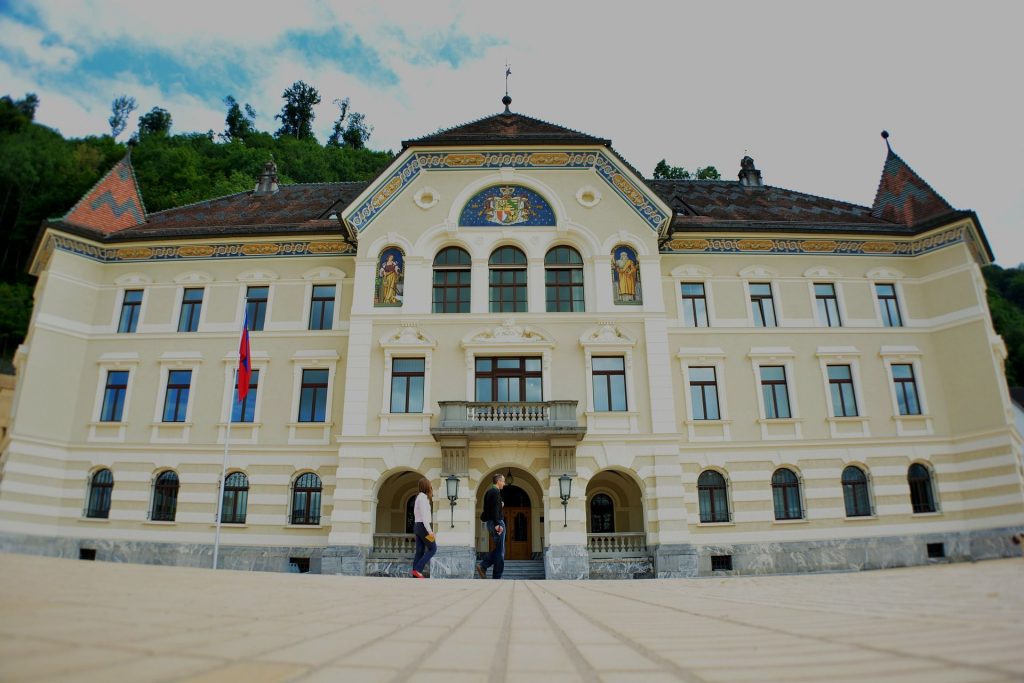Quo vadis, Europe?
In the aftermath of the catastrophic retreat from Afghanistan, Europe was brutally confronted with its inability as a geopolitical player
In the aftermath of the catastrophic retreat from Afghanistan, Europe was brutally confronted with its inability as a geopolitical player. The continent needs to reassess the role of the European Union and look beyond Brussels to create a cohesive foreign policy.
The painful exodus from Afghanistan has made many losers. The people who worked for the occupying forces were left behind and betrayed. The entire Afghan population will suffer under the Taliban yoke. And the Western powers who left have lost their reputation, along with their illusions that a rule-based multilateral order can be enforced according to their own standards only.
Europe had to come to terms with its total ineffectiveness as a global geopolitical player. In the capitals of the old continent, many entertained the naive illusion that President Biden’s “America is back” slogan meant Washington would treat Europeans as equal partners. This fantasy was short-lived. In essence, President Biden’s policies have amounted to less cooperation than under the “America first” days of President Trump. The new administration seems to operate under the motto “America only.”
Europe was powerless to prevent the catastrophe, and the evacuation was botched and disastrously chaotic. Politicians’ only reaction was to complain.
“A common security and foreign policy cannot evolve while member states are suffocated by overregulation”
One would expect the events to have served as a wake-up call. However, the German example is sobering. Political circles and the media are more concerned with the campaign to elect the new parliament and, indirectly, the new chancellor that will inherit the scorched earth left after 16 years of rule by Angela Merkel. Germany had forces in the Hindu Kush throughout that period, but Chancellor Merkel showed little interest. London appears to be the only capital where a reassessment is taking place. France proved more realistic and started the evacuation of Afghan staff and collaborators, the most endangered group, in May of this year. But overall, Europe reacted like a flock of hens attacked by a predator.
Cramped house
After World War I, proponents of European integration began calling for the creation of an internal market and a coordinated foreign and security policy. The Pan-European Union was formed. But, most importantly, all other functions were meant to be solved locally by the promoters. The movement was heavily antagonized by nationalists, who then prevailed in Europe, but returned after World War II. Fervent promoter of integration Archduke Otto von Habsburg, who eventually became president of the Pan-European Union, described the model as a “European village” rather than a “European house” – a dangerous slogan that started to be used later, in the 1980s. In the latter, European nations would be confined and restrained under one set of rules. But in a European village, where every house is autonomous and unique, only common interests like security and infrastructure can be handled together.
Europe needs healthy integration but not harmonization.
Unfortunately, the harmonization mania now prevailing – which also triggered Brexit – amounts to living in a tightly regulated European house. A common security and foreign policy cannot evolve while member states are suffocated by overregulation.
“Europe developed a strong economy thanks to deregulation, entrepreneurship and competition, not state intervention.”
The concept that originally and up to recently provided a well-functioning internal market is now threatened by excessive regulation, particular interests and issues of larger member states. For example, France and Germany, in a selfish and hypocritical move, have been calling for the harmonization of social security. This would eliminate healthy competition and harm the principle of free exchange, especially of services. It would hurt Central European member states. Another problem is the necessity of constant financial transfers to Southern European countries, to their grave long-term detriment, as the money flow bloats local bureaucracy and gives governments the wrong incentives.
Europe developed a strong economy thanks to deregulation, entrepreneurship and competition, not state intervention.
GIS expert Professor Alberto Mingardi offers an accurate comparison: “The basic idea for the present European Union was a big Switzerland. It developed then according to the French model and the result is a big Italy.” Since the Italian unification in the 1860s, there were constant flows of money from north to south. The funds served to build an excessively large administrative system and impeded the development of a healthy economy – not to mention the rise of the Mafia, which was also the result of the unification.
Thinking outside the box
In the past, the European Union proved extremely effective at breaking up national monopolies or oligopolies, which for instance helped Austria enormously. This also contributed to the development of Central Europe, along with local populations’ strong will to progress. However, Brussels is now increasingly becoming a playground of vested interests, centralization and harmonization. The dangerous claim that Europe’s strength lies in being a “regulatory superpower,” while comforting to many, has blood-chilling implications.
One could reasonably conclude that the EU should be downsized to an institution regulating and protecting the internal market, and some necessary infrastructure measures such as energy security and strengthening global competitiveness by preserving more internal competition. Rather than opt for the shortsighted vanity of being a “regulatory superpower,” Europe should aim to become a village made up of distinct autonomous dwellings again, instead of a single mediocre house. But now the common budget and the institutionalization of the transfer union will take away even more independence from member states.
When it comes to creating a coordinated foreign and security policy, Brussels is not the ideal platform. Going down the path of centralization to achieve this would be a dangerous slope, since member states and regions would lose even more of the much-needed ability required to address their issues. And the track record of the Union’s foreign policy – except for its true vocation, trade – is lackluster at best. Brussels should perhaps be left to concentrate on the internal market and trade. The situation requires a new platform that will encourage out-of-the-box thinking. Such solutions can appear utopian, but sometimes there is no other way forward.
“An effective European defense could be a renaissance for NATO”
A new forum to implement such a vision could include the United Kingdom, which should obviously not be excluded from a coordinated or even common foreign and security policy. Meanwhile, not every European country would have to belong in the same capacity. Participation could be adjusted to reflect different security concerns, which vary greatly depending on proximity to Africa, the Middle East or Russia. In parallel, vital issues, such as the protection of trade or incidents like the evacuation from Afghanistan, could be addressed jointly. An effective European defense could also be a renaissance for NATO.
The United States is an important partner and ally, but Europe should not be dependent.
Hopefully, the disaster in Afghanistan will launch a helpful debate in Europe, one that will include the UK. What we need now is to think beyond existing institutions and processes, as the original proponents of European integration did.

The editorial contribution comes from the information and research site “Geopolitical Intelligence Services” (GIS) of the Principality of Liechtenstein







